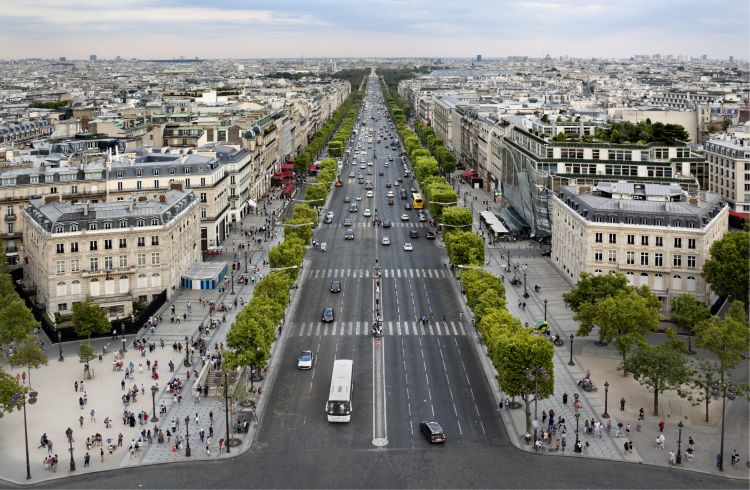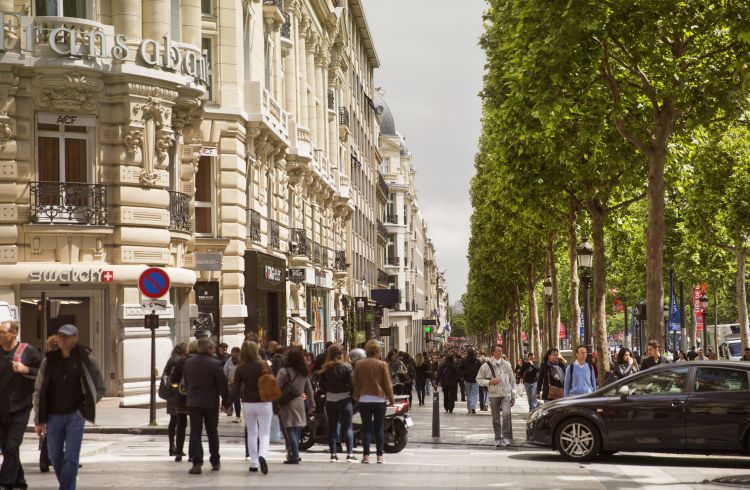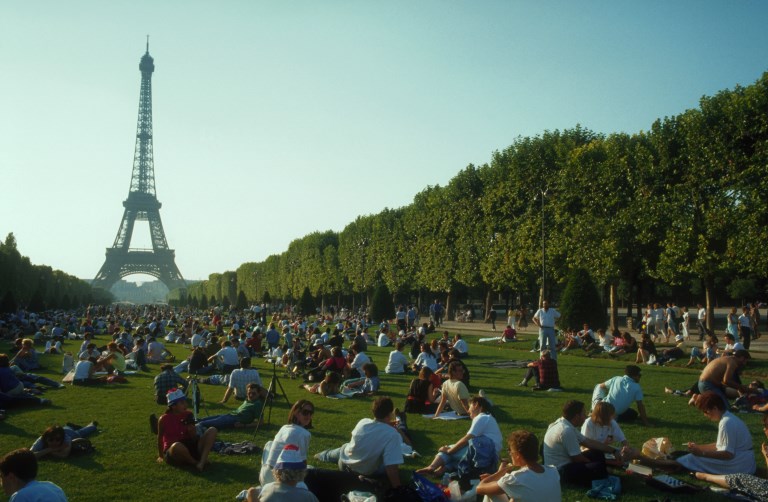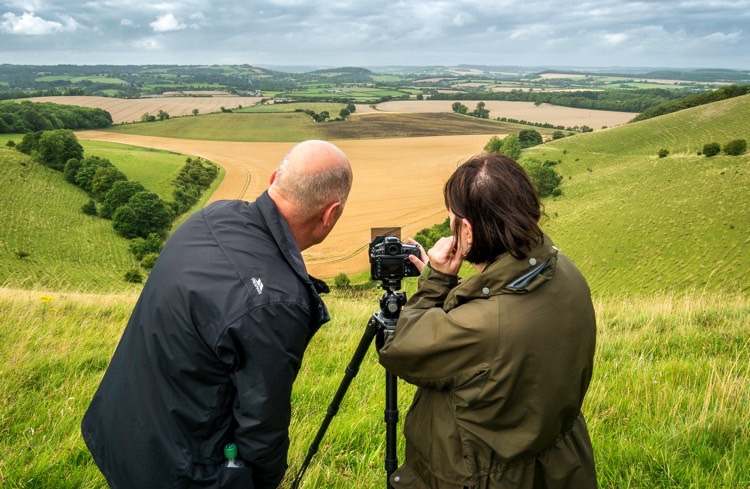Is it Safe to Drive in France? Road Safety Tips
Driving in France is safe, but there are a number of things travelers should look out for. Stay safe on French roads with these travel safety tips.
 Photo © Getty Images/Daniel.Candal
Photo © Getty Images/Daniel.Candal
There are many ancient, towns throughout France that weren't designed with modern vehicular traffic in mind, some with crazy sharp corners (as evident by the scrapes on some buildings) so drivers need to slow down.
Even Paris is reasonably easy to negotiate – with the exception of the 'radial' around the Arc de Triomphe. This mega-roundabout with 12 connecting roads doesn't have lane markings or traffic signals. Watching it is fascinating – but driving it can be nerve-wrecking.
- Driving in France
- Road rules in France
- What to do if your car breaks down
- Drink driving in France
- SatNav and radar detectors in France
Driving in France
- To drive in France, you must be 18 years old (some hire car companies require drivers to be 21) and have a valid (non expired) license from your home country. For EU countries, this is valid indefinitely. For everyone else, it's up to one year
- If your license is in a language other than English, you will need to get an International Driver's Permit (in French translation) or have it transcribed into French
- Make sure you always carry your driver's license, passport, insurance and rental papers with you
- You must check that your vehicle has the following in case of a breakdown situation: red warning triangle and hi-vis vest (for all occupants of the car and must be located in the car cabin)
- All speed signs are in kilometers per hour and the French drive on the righthand side of the road (same as the United States)
- All motorcyclists must also carry a hi-vis vest to wear in case of breakdown or an emergency
- Your car must have spare lightbulbs and headlamp converters
- France has its fair share of toll roads, some of which you can only pay by chipped credit card
- If you are road tripping, don't forget to stop regularly for breaks to beat fatigue. Motorways have aires which can be as simple as a picnic spot or a service center with more amenities
- Snow chains are compulsory in mountainous regions during winter so make sure you have a set with you or fitted beforehand.
Road rules in France
Like many other countries, France has its own road rules but here are some which may catch out any unsuspecting traveler on the road:
- You must call the police or Gendarmes in the event of an accident. If you can't get to an SOS phone, the number to call is 112 which will put you in touch with all emergency services and English speaking operators. You will need to give them the motorway number, direction you're heading and closest landmark (if possible)
- It's illegal to use a cell phone while operating a vehicle even if it's with headphones. Bluetooth is allowed. Penalty - €135 (US$153)
- It's illegal to park within 17ft (5m) of a pedestrian crossing
- Don't even think about having brekkie behind the wheel, that will cost you €75 (US$85) if you get busted
- Pumping the tunes in the car so loud that you can't hear traffic? €75 fine (US$85) for that
- Watching a film or tv show on your iPad or tablet instead of the road will dent your bank account by €1,500 (US$1700).
What to do if your car breaks down in France
- If you have broken down, pull into the emergency slip lane and turn on your hazards lights
- You must wear a hi-vis vest if you have to get out vehicle and this must be put on before you exit the vehicle. Only exit the vehicle if it's safe to do so
- You need to put out the red triangle in the emergency lane to warn other motorists. This needs to be placed 109 yards (100m) away from the vehicle on motorways and 32 yards on other roads
- There are orange SOS phones located every 1.2 miles (2km) on motorways. If you are unable to reach one, then the number to call is 112.
Drink driving in France
The legal blood alcohol limit in France is 0.05 (or 0.02 if you are a learner or new driver of three years or less). One in three road fatalities are caused by drink-driving and it's also estimated that over ~50% of road accidents on weekends are caused by intoxicated drivers. The penalty for drink driving is €4500 (US$5100). Driving under the influence of drugs attracts the same penalties as drink driving.
You may have heard about the rule where you need to carry a breathalyzer in the car which was introduced in 2012.
Well in March 2013, the Interior Minister removed the sanction because of doubts over accuracy of the devices and device supply problems.
So while it's technically still compulsory to have one, you won't be fined for not producing one when asked. Effectively the law is shelved. Vive la France.
SatNav and radar detectors in France
It's illegal to have a device capable of telling you the exact location of a fixed speed camera, and that includes your in-built or hand-held SatNav and apps on your smartphone.
SatNav and traffic alert companies have responded by updating their maps, replacing the exact camera location with a "danger zone" alert indicating a camera is likely to be in this vicinity.
Car rental companies should have downloaded new software that makes the change to in-built SatNav devices, but check if they have – fines are heavy.
If you‘re using your own SatNav, update the software or disable the function. Although it's worth noting police cannot inspect your SatNav or smartphone to verify you have the system without "cause" – so don't give them one.
Try "Je n'ai pas SatNav" (I don't have SatNav), and when they point to the one in the centre console try "Est-ce ce que c'est?" (Is that what that is?).
The breathalyzer-busting Interior Minister has also ordered road signs warning of speed camera locations to be reinstated - bravo!
It remains illegal to have a radar detector in your car, even if it is not switched on. Expect to cough up €1,500 (US$1700) if caught.
Related articles
Simple and flexible travel insurance
You can buy at home or while traveling, and claim online from anywhere in the world. With 150+ adventure activities covered and 24/7 emergency assistance.
Get a quote


1 Comment
French motorways, known as autoroutes, are designated with numbers preceded by the letter A (for Autoroute). Thus, when driving to the south of France from Calais, you can either take the A16 autoroute towards Amiens and Paris.